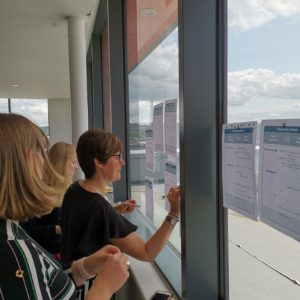“Life is a series of ‘Peaks and troughs’ – what I want is for the ‘troughs’ to be less deep”.
This straightforward request struck a chord with many participants at the recent Devices for Dignity – Living Well with Diabetes workshop, particularly those living with diabetes and other long-term health conditions.
The contributor had been asked what she would want from technology that was developed to help self-manage her diabetes – and ‘what matters to you?’ was the theme for the day.
This ‘unmet needs’ event was an opportunity for people to share their experiences of managing diabetes day to day, to help clinicians, academics, designers, engineers and others understand their daily challenges, and explore ways for technology to be harnessed and developed to help people better manage their diabetes.
Others participants expressed they would have liked resources to help them after they were diagnosed which also supported them to adjust to life afterwards; or had tools to sustain confidence in their abilities to self-manage in new situations and environments; or ways of accessing support when the intensity of long – term management of their diabetes had impacted their mental health and wellbeing.
With one in fifteen people in the UK (approx. 4.7 million people) living with diabetes and the number of people diagnosed with diabetes having doubled in the last twenty years (Diabetes UK, 2019), it’s as important now more than ever to maximise the potential of well-designed and acceptable technology in supporting people to maintain their self-management skills as well as responding to complications if they develop.
At Devices for Dignity, we believe that the foundations for well-designed technology development and sustainable use are identifying and understanding unmet needs and ensuring that the intended users of these technologies are at the heart of the co-design process.
Devices for Dignity is a MedTech Cooperative funded by the NIHR (referred to as the research arm of the NHS), established as a catalyst for the development of new medical devices and technology interventions for chronic health conditions often associated with loss of dignity and independence.
After a need has been identified, we work in collaboration with our national networks of patients and experts to independently refine and validate the need, before exploring creative conceptual approaches and producing and refining prototypes. This approach ensures that valuable time and resources are not wasted in developing technologies that are ultimately unlikely to reach the clinic or marketplace.
Our Living Well with Diabetes workshop was our springboard – the next stage in the journey to ‘make the troughs less deep’ will be working with a range of partners to formally validate the need before establishing teams to work together to create new technology solutions.




